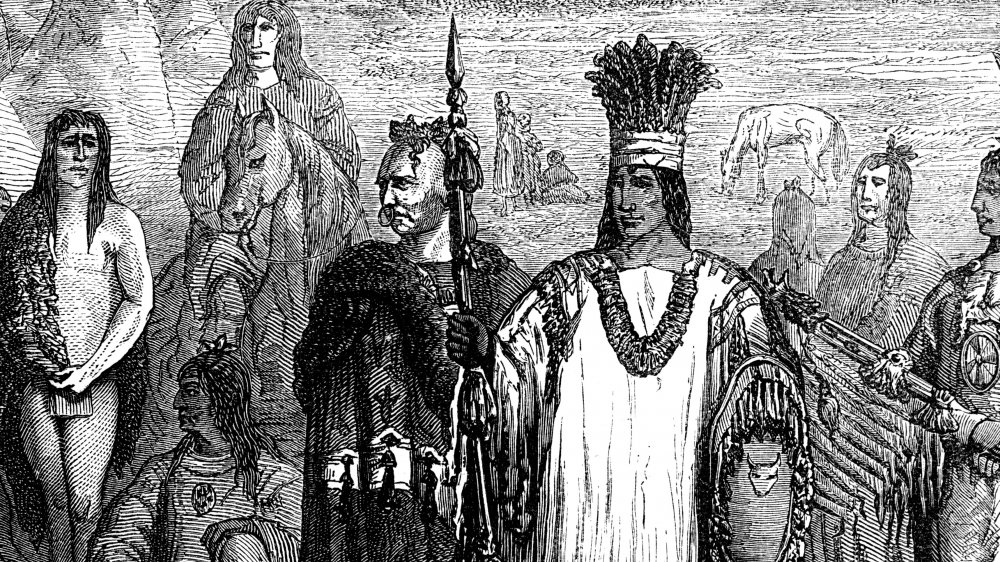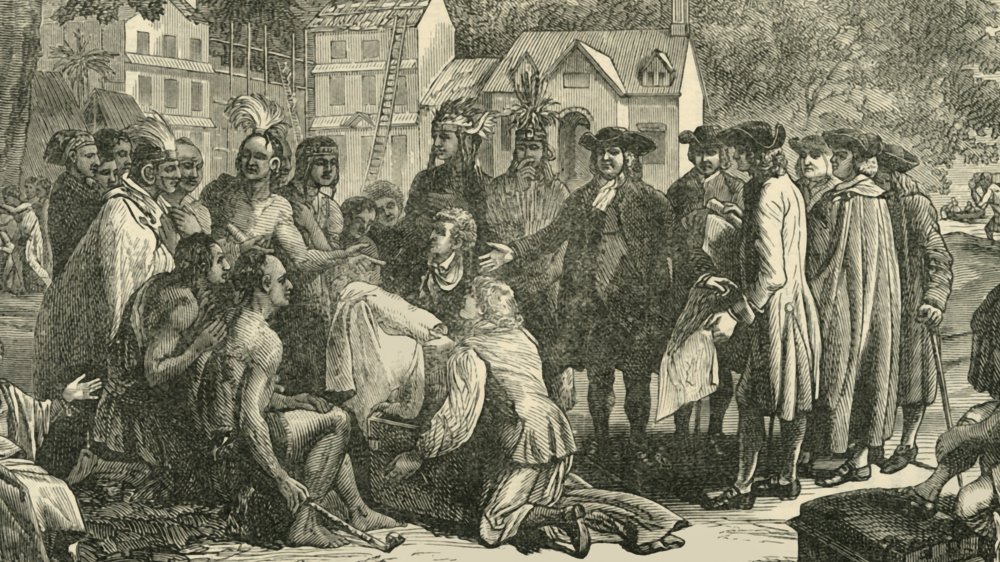The Real Reason Native Americans Weren't US Citizens Until 1924
Despite settling in what became the United States long before Christopher Columbus was even born, Native Americans did not become US citizens until the 1920s. The Indian Citizenship Act of 1924 — also known as the Snyder Act — granted Native Americans citizenship in the country their ancestors grew up in. Just one of the many injustices against them.
Politicians of that time "did not consider Indian people civilized or intelligent enough to become American citizens and opposed any efforts to make Indians citizens," an article from the Nevada Law Journal said.
The act, reports History, June of 1924, provided citizenship to all Native Americans born "within the US territorial boundaries." Some Native Americans who married US citizens or joined the army to fight in World War I had been granted American citizenship, but petitions for full-fledged citizenship had been around for a long time. Native Americans wanted recognition in courts and protection of property like everyone else.
Native American activists had been pushing the government to grant citizenship and full rights to all Native Americans since the 1830s, per the The Nevada Law Journal. This culminated in the Dawes Act of 1887, allowing Native Americans to become citizens in exchange for lands and if they could prove they had assimilated into US culture — which meant living away from their tribe. Doing so made them "civilized" in the eyes of European settlers.
Citizenship in the land they've lived in for millennia was hard-fought, but not all Native Americans even wanted to be US subjects.
Some tribes still oppose US citizenship
Some tribes opposed this automatic transition of citizenship. Before the United States as a country existed, these tribes considered themselves members of their own nation. Becoming full-fledged Americans meant they were giving up this sovereignty. The Onondaga Nation says in its official website that it has "never accepted the authority of the United States to make Six Nations citizens become citizens of the United States...accepting United States citizenship would be treason to their own Nations." Indian Country Today writes many felt citizenship was "thrust upon them without consent."
The Onondaga also believe citizenship in the US forces Native Americans to assimilate to white culture and erase their indigenous beliefs. In fact, the Dawes Act looks for proof of assimilation, basically, Manifest Destiny enshrined by law. But other tribes believed it was a matter of protecting their people. Still, the Onondaga and other nations continue to fight against what they believe is unwanted dual citizenship and demand to be considered separate from the United States.
Native Americans were the first people to settle in the United States. They found ways to cultivate its often difficult land, and were integral to European survival — a fact celebrated every year at Thanksgiving (itself a Native American tradition.) And yet after America became a country, Native Americans found themselves having to ask for an ever-shrinking seat at the table.

